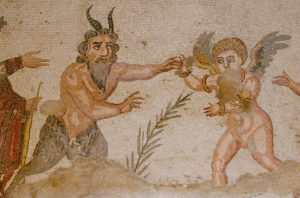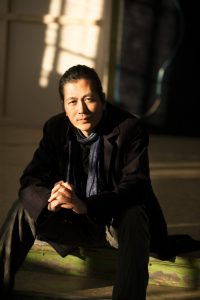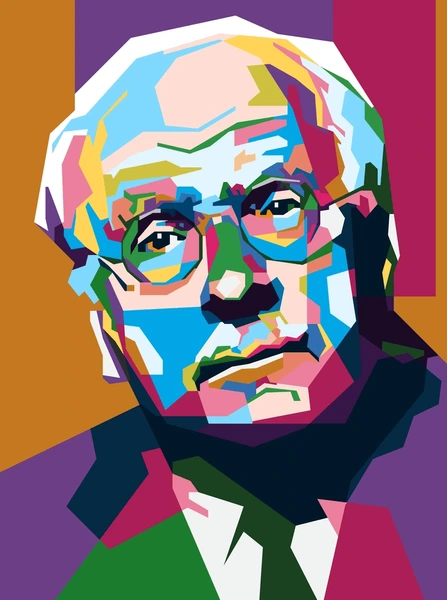Byung Chul Han, South Korean professor at the University of Basil, knows about love. It is threatened. Eros is dead.
It is always good to start a book with a cliff hanger…
It was in A.D. 14–37 that the great god Pan was declared death by a sailor called Thamus. He had heard of his death in a divine whisper.

With the death of the horned god Pan came the birth of theology.
And now Byung Chul Han, even though he is not sailing on a ship, has heard a similar divine whisper. The great god Eros is dead… And in this book he analysis love in every manifestation possible.
The Agony of Eros (Click to buy the book and support Mindfunda) from The MIT Press, published in 2017, originally published as “Agonie des Eros” in the series Fröhliche Wissenschaft by Matthes & Seitz Berlin.
In seven chapters love is taken into the box ring. Dragged from depression to powerlessness, to pornography and emptiness, to nowadays superficial consumerism.
But it also triggers your mind. What is love for you? What are your feelings about porn? Is there love in politics?
Byung Chul Han: a Man’s Vision on Eros

copyright S Fischer Verlag
Byung Chul Han is a man. (I know you start to laugh right now because it is so obvious). And it shows in his analysis and his texts. I can not help but wonder how a female philosopher would have taken on the challenge of the death of Eros.
Do you remember the film Pan’s Labyrinth? It is also a man’s vision on female initiation in a patriarchal society. Nothing would please me more as a woman’s vision on this subject.
Don’t get me wrong. i like this book. A lot. let me explain why in the next paragraph.
Byung Chul Han: The Other
Being a Jungian, I am always pre-occupied with the Self. Byung Chul Han is preoccupied with the Other (written with a capital O just like the Jungian Self is always written with a capital S).
“Eros is a relationship to the Other situated beyond achievement, performance, and ability” (page 11).

The Other is defined in Lao’s von Trier’s Melancholia how the Other brings you in a state of disbalance…
The Other-ness is also the fuel for erotic attraction between partners. And to fully conceive and appreciate the Otherness a death of the Self is in order. That does remind you of the words of Joseph Campbell, doesn’t it? How he spoke of marriage as death.
The agony of Eros, the depreciation of the value of Otherness, lies in the unification of contemporary society. Or what Byung Chul Han calls: “the inferno of the same” at every turn .
Conclusion
This book is not for everybody. It assumes a vast knowledge of philosophers and films that not everybody will have.
But it is an excellent work out for your mental muscles. How does Byung Chul Han differ from Joseph Campbell for example? Joseph Campbell, seems to contradict Byung Chul Han because Joseph assumed that society in the middle ages had discovered eros. In his interviews with Bill Moyers he talks about how in the 12th century love was re-invented by the troubadours. They spread the word about this new standard for eros and marriage very rapidly. Byung Chul Han suggests that we now have buried love/eros. In a time with multiple divorces it seems like we have gotten back to pre-medieval times.
Our Current Courses (Click to find out More)
Sign up for our free e-book: 10 easy ways to instantly improve your dream memory


